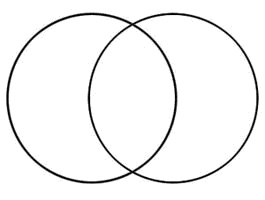- Dec 31, 2010
- 5,744
- 2,878
- 113
- Faith
- Christian
- Country
- United States
Plato's Meno is a dialogue in which Socrates and Meno discuss human virtue: whether or not it can be taught, whether it is shared by all human beings, and whether it is one quality or many.
After discussion with Anytus, Socrates and Meno return to the subject of whether Virtue can be taught. "To sum up our enquiry," Socrates concludes, "the result seems to be that virtue is neither natural nor acquired, but an instinct given by God to the virtuous."
Meno's theme is also being dealt in the dialogue of Protagoras, where, Plato finally puts Socrates to conclude with the opposite conclusion 'That virtue can be taught.' It is important to conclude that virtue is in different departments than knowledge. One may have an understanding as vast as the great outdoors…And not a thing in the heart!
The Methodist doctrine produced a great deal of revival with great outpourings of the Holy Spirit. When the revivals grew cold the Holiness folk attempted revivals in the late 1800's. With the arrival of Pentecost around the turn of the last century these revivals continued for almost the next 100 years.
When I first got into Pentecostal Holiness I first thought that it was the most superior doctrine known to man. As it produced revival and as the Holy Spirit was among us, all the more merrier. And then... We took the Laodicean swing from hot --->lukewarm---> cold... Just like the Methodist 100 years before us.
If virtue was knowledge then it could be taught in our seminaries and brought out into the public with a bright light and a warm energy.
But virtue is not knowledge... It cannot be taught... It is a gift given to God to the virtuous. I also did a video on this by the way...
http://www.youtube.com/watch?v=caG7Oq93bUQ
After discussion with Anytus, Socrates and Meno return to the subject of whether Virtue can be taught. "To sum up our enquiry," Socrates concludes, "the result seems to be that virtue is neither natural nor acquired, but an instinct given by God to the virtuous."
Meno's theme is also being dealt in the dialogue of Protagoras, where, Plato finally puts Socrates to conclude with the opposite conclusion 'That virtue can be taught.' It is important to conclude that virtue is in different departments than knowledge. One may have an understanding as vast as the great outdoors…And not a thing in the heart!
The Methodist doctrine produced a great deal of revival with great outpourings of the Holy Spirit. When the revivals grew cold the Holiness folk attempted revivals in the late 1800's. With the arrival of Pentecost around the turn of the last century these revivals continued for almost the next 100 years.
When I first got into Pentecostal Holiness I first thought that it was the most superior doctrine known to man. As it produced revival and as the Holy Spirit was among us, all the more merrier. And then... We took the Laodicean swing from hot --->lukewarm---> cold... Just like the Methodist 100 years before us.
If virtue was knowledge then it could be taught in our seminaries and brought out into the public with a bright light and a warm energy.
But virtue is not knowledge... It cannot be taught... It is a gift given to God to the virtuous. I also did a video on this by the way...
http://www.youtube.com/watch?v=caG7Oq93bUQ



